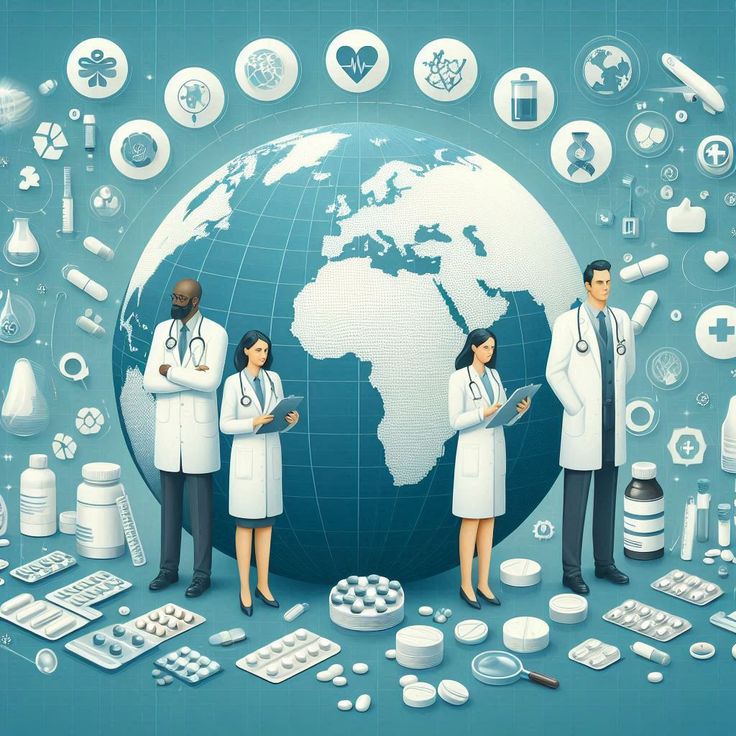7 Powerful Reasons Why Community Pharmacists Are Lifesavers in Daily Life
Community pharmacists are far more than dispensers of medicine — they are vital health professionals, educators, and often the first line of defense in public health. Found in neighborhood pharmacies and local medical stores, community pharmacists play a critical role in ensuring people get the right medication, in the right dose, at the right time — while also providing personalized healthcare advice and emotional support.
- 📜 History of Community Pharmacists
- 📚 Important Facts About Community Pharmacists
- 🔍 What Does a Community Pharmacist Do?
- 🌍 Significance of Community Pharmacists in Society
- 🎯 Community Pharmacist: Importance in Our Lives
- 💬 FAQs on Community Pharmacists
- 1. What qualifications are required to be a community pharmacist?
- 2. Is a community pharmacist allowed to prescribe medicine?
- 3. Can pharmacists administer vaccines?
- 4. Do pharmacists only work in medical shops?
- 5. Is it a respected profession?
- 🎉 Wishing and Honoring Community Pharmacists
- 🔑 Key Points to Remember
- 💡 Why Community Pharmacists Are Crucial for Society
- 📌 Conclusion: Why We Need to Celebrate Community Pharmacists Every Day
This article dives deep into the history, significance, facts, FAQs, timeline, and the daily life impacts of community pharmacists, and how they contribute enormously to society.
📜 History of Community Pharmacists
The history of pharmacy stretches back thousands of years, but the concept of the community pharmacist as we know it today began to take form in the 19th century. Here’s a brief historical timeline:
🕰️ Timeline:
2600 BCE – The earliest known pharmaceutical texts originate from Mesopotamia, where herbs and minerals were prescribed.
Ancient Greece and Rome – Apothecaries began specializing in preparing and dispensing medicines.
1240 CE – The separation of physician and pharmacist roles was formalized by Emperor Frederick II.
17th–18th century – Pharmacy became a licensed profession in Europe.
19th century – Community pharmacy shops began to emerge in towns and cities across Europe and the U.S.
20th century – The role evolved to include patient counseling and health monitoring.
21st century – Community pharmacists are now involved in vaccination, chronic disease management, health screenings, and even mental health support.
📚 Important Facts About Community Pharmacists
There are over 4 million pharmacists globally, and a large number serve in community settings.
WHO recognizes pharmacists as essential health workers.
In India, the Pharmacy Act, 1948 laid the foundation for professional community pharmacy practice.
Community pharmacists handle over-the-counter (OTC) and prescription medications, giving personalized advice.
Digital pharmacy models are now extending the reach of community pharmacists through teleconsultation.
🔍 What Does a Community Pharmacist Do?
A community pharmacist wears many hats. Here are some of their core responsibilities:
Dispensing medications safely
Educating patients about dosages, side effects, and interactions
Monitoring chronic diseases like diabetes and hypertension
Administering vaccinations
Providing emergency care, such as first aid and poison control
Advising on lifestyle, diet, smoking cessation, and more
Connecting with physicians for follow-up or clarification
They are health educators, drug experts, and trusted confidants—all rolled into one.
🌍 Significance of Community Pharmacists in Society
First Point of Contact: In rural and semi-urban areas, community pharmacists often serve as the first and sometimes only accessible health professionals.
Accessibility: No appointment is required to talk to a pharmacist—making healthcare instantly reachable.
Trust Factor: People often turn to pharmacists first for minor ailments, trusted advice, or repeat prescriptions.
Health Awareness Campaigns: Many pharmacies conduct free BP checks, blood sugar tests, and organize wellness camps.
Emergency Support: They often guide patients in cases of accidental overdose, allergic reactions, or medication errors.
Bridging the Healthcare Gap: In countries with a shortage of doctors, community pharmacists help reduce the burden on hospitals and clinics.
🎯 Community Pharmacist: Importance in Our Lives
Let’s break down the daily and long-term impact community pharmacists have on our lives:
✅ Daily Life Impact
Save time and provide quick relief by guiding correct OTC medicines.
Detect issues like drug interactions or adverse effects early.
Offer mental comfort, especially to elderly or chronically ill patients.
Recommend affordable generic alternatives, saving money.
Provide confidential consultations about sensitive health issues (e.g., contraceptives, skin diseases, mental wellness).
🏥 In Long-Term Health
Help in adherence to treatment in chronic illnesses.
Create awareness about immunization, hygiene, and preventive care.
Collaborate in public health crises (COVID-19, for example).
Serve as health literacy educators—simplifying complex medical jargon.
💬 FAQs on Community Pharmacists
1. What qualifications are required to be a community pharmacist?
A Diploma in Pharmacy (D. Pharm) or Bachelor in Pharmacy (B. Pharm) is essential, along with registration under the State Pharmacy Council.
2. Is a community pharmacist allowed to prescribe medicine?
No. They can recommend OTC medications, but prescription drugs must be prescribed by a doctor.
3. Can pharmacists administer vaccines?
Yes, in many countries (including India post-COVID-19), trained pharmacists are authorized to give certain vaccinations.
4. Do pharmacists only work in medical shops?
Mostly, but they are also now part of clinics, telemedicine setups, and health advisory teams.
5. Is it a respected profession?
Absolutely! Especially post-COVID, the visibility and respect for pharmacists has skyrocketed.
🎉 Wishing and Honoring Community Pharmacists
On World Pharmacist Day (September 25), it is vital to acknowledge and thank these unsung healthcare heroes. Here’s a warm wish you can share:
“A heartfelt salute to all community pharmacists — the caring hands behind every prescription. Your dedication heals beyond medicines. Happy World Pharmacist Day!”
This day can be observed in:
Schools/Colleges by hosting health camps or awareness talks.
Pharmacies can offer free services or discounts to commemorate the day.
Citizens can express gratitude via thank-you notes or social media posts.
🔑 Key Points to Remember
Community pharmacists are accessible health professionals with immense social value.
They bridge the healthcare gap especially in underserved areas.
Digital health integration is amplifying their importance.
Their role in health awareness and chronic disease management is indispensable.
They promote rational drug use, reducing misuse and dependency.
💡 Why Community Pharmacists Are Crucial for Society
Community pharmacists act as the backbone of primary healthcare. Unlike other health professionals, they are always present in our community, patiently guiding people through confusing medical prescriptions, dispelling fears, and offering a compassionate ear.
They are key players in:
Public health delivery
Emergency preparedness
Medication safety
Health literacy improvement
By empowering individuals with knowledge and access to medicine, they contribute to a healthier, more informed society.
📌 Conclusion: Why We Need to Celebrate Community Pharmacists Every Day
In a world of rising healthcare costs, medical inaccessibility, and misinformation, community pharmacists emerge as trustworthy, affordable, and effective health allies. Whether you’re battling a headache, managing diabetes, or seeking emotional reassurance, chances are—you’ve leaned on your local pharmacist.
Their presence makes our lives healthier, safer, and more informed. That’s why it’s important not only to recognize them on World Pharmacist Day but to acknowledge and appreciate their contributions every day.
✅ Final Thought:
“Behind every well-being is a pharmacist ensuring your healing journey is safe, smooth, and supported.”








